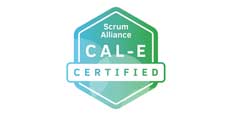Contents
They should all be decided by the same standard, proof of guilt beyond a reasonable doubt. 38.Judges and academics have used a variety of terms to try to capture the distinction between the two types of burdens. The party who has the persuasive burden is required to persuade the trier of fact, to convince the trier of fact that a certain set of facts existed. alpari review Failure to persuade means that the party loses. The party with an evidential burden is not required to convince the trier of fact of anything, only to point out evidence which suggests that certain facts existed. The phrase “onus of proof” should be restricted to the persuasive burden, since an issue can be put into play without being proven.

89 of the Code, is essential to the verdict. Section 106.7 relieves the Crown of the onus of proof beyond a reasonable doubt and requires the person charged under s. 89 to “prove” possession of a registration certificate on a balance of probabilities.
Counsel also objected to Sgt. Pilcher testifying about any documents that might have been placed in the file after he was transferred out of the Firearms Section. Held that the trial judge erred by admitting the evidence of Sgt. Pilcher which did not relate specifically to things done by Pilcher himself; ndax review Sgt. Pilcher had gone on to other duties; such evidence was hearsay and could only be admitted after giving notice pursuant to s. I was privileged to have been taught by both Mr. and Mrs.Schwartz during my one year at Central School in 1969 and took with me some wonderful memories of each of them!!
He is in our thoughts and prayers. He was my sister’s god father and I remember how kind he was as he included me in many things when I was younger also. I am sorry for your lose and know you as a family know he was a good person as was his wife. Our sincere condolences to the family of such a humble, wonderfully inspiring & intelligent man. May God bless you all with peace.
Toronto Children’s Dentist
55.Even if a less stringent rational connection should be applied to offences prohibiting certain acts in the absence of a permit or licence, in my view the present appeal is governed by the principles set out in R. As in that case, I do not think that the provision here challenged impairs “as little as possible” the presumption of innocence (R. v. Big M. Drug Mart Ltd., supra, at p. 352, Oakes, supra, at p. 139). Presumably, the objective behind Part II.1 does not include convicting persons who are able to raise a reasonable doubt as to their guilt but are unable to establish their innocence on a balance of probabilities. The legislative objective behind Part II.1 can just as easily be met, in the absence of s. 106.7, by not requiring an accused to prove on a balance of probabilities that the firearm is or was duly registered.
The recipient of many awards and accolades, in 2019 Dr. Martin became the youngest physician ever to receive the F.N.G. Starr Award, the highest honour available to Canadian Medical Association members. Dr. Jim Christenson is a recently retired emergency physician at St. Paul’s Hospital in Vancouver. He is a Professor and past Head of the Academic Department of Emergency Medicine in the Faculty of Medicine at the University of British Columbia and has a wide range of experience in emergency care clinical research.
He was much loved and respected by everyone who had the pleasure of knowing him. Please accept my condolences on the passing of Martin. I came to know Martin through his association with CBU where I taught chemistry. He was such a kind, thoughtful, and generous man… A true gentleman as well as a fine educator. His like does not come to us often and we value him all the more for that.
39.It is important not to identify the evidential burden solely with the accused. The Crown has the evidential burden of leading evidence which, if believed, would prove each element of the offence charged. If the Crown does not even meet this evidential requirement, the case never goes to the trier of fact; the accused has a right to a directed verdict of acquittal. THAT the learned County Court Judge erred in law in ruling Section 106.7 of the Criminal Code of Canada was unconstitutional in that the said section contravened the provisions of Section 11 of the Canadian Charter of Rights and Freedoms.
- Also relied on Martin J.A.’s decision in R.
- Easy to do and readyto work right away.
- This Court has already rejected English authority that the presumption of innocence is subject to statutory exceptions; it is also necessary to reject English authority that the presumption of innocence is subject to common law exceptions.
- He started his teaching career in India.
He started his teaching career in India. At the age of 32 he took his young family to Ethiopia where he taught for 14 years. From a possible drop in prices to a spotlight on condominiums, here are the trends that real estate experts are forecasting for the Canadian housing market this year. For most workers around the world, vacations are strictly a time to unwind. The last thing they want while relaxing on a balmy beach or hiking in the hills is an annoying business call from a colleague.
CTV News exclusive: Bill Morneau ‘worried’ about 2023 recession
There are people you encounter on your journey that can have a significant positive impact on your life. His kind and caring nature and skill as a high school teacher inspired me to obtain my degree in chemical engineering and to pursue a career in environmental engineering. I wish to extend my sincere sympathies to Paul and the entire Schwartz family.
Section 89, under which the appellant was charged, prohibits the possession of an unregistered restricted weapon. There are numerous other offences relating to the sale, delivery or acquisition of firearms and other offensive weapons (ss. 91‑97). 44.It is necessary, however, to distinguish the analysis under s. 11 is whether or not a provision requires the accused to prove some fact, with a possibility of a conviction in spite of a reasonable doubt. Lee’s Poultry Ltd. is therefore of little assistance on the meaning of s. In any area, there will be one local registrar who has jurisdiction over the location of the accused’s residence and normal place of business.
Firstly, its objective was sufficiently important to warrant overriding a constitutionally protected right. Secondly, the proportionality test was met. The provisions were rational, fair and not arbitrary; they impaired the protected right as little as possible; and, the measures adopted were carefully tailored to balance the community interest and the interest of those wanting to legally possess weapons. There is a clear if subtle difference between shifting the burden of proof, or risk of non‑persuasion of the jury, and shifting the evidential burden, or burden of introducing evidence in proof of one’s case. Parliament has provided in other cases for proof by way of documentary evidence, without the necessity for a witness in court. The certificate of a breathalyzer analyst, referred to earlier, is one such example.
Dr. Gelkopf Marvin
The Canada Evidence Act provides another way to prove matters by document. There does not seem to be any difficulty for Parliament to allow similar proof of the files of the local registrar, or possibly of the contents of the Commissioner’s central registry. In either case, it cannot be said that Parliament has impaired the presumption of innocence as little as possible. 59.One of the hallmarks of the common law of evidence is that it relies on witnesses as the means by which evidence is produced in court. As a general rule, nothing can be admitted as evidence before the court unless it is vouched for viva voce by a witness. Even real evidence, which exists independently of any statement by any witness, cannot be considered by the court unless a witness identifies it and establishes its connection to the events under consideration.
If the person is eligible, the local registrar forwards the application to the Commissioner of the Royal Canadian Mounted Police (s. 106.1). If the local registrar has notice of any matter suggesting that in the interests of safety it would not be advisable for the applicant to have a restricted weapon, the local registrar must inform the Commissioner (s. 106.1). The registration certificate only entitles the owner to keep the weapon at his or her residence or place of business (s. 106.1). A carrying permit is required to take the weapon off the premises mentioned in the certificate (ss. 89, 106.2). The presumption of innocence guaranteed by s. 11 of the Charter is not subject to statutory or common law exceptions and is infringed by any provision requiring that the accused bear a persuasive burden.
I propose first to address this latter issue, and then turn to the constitutional issue in this appeal. I note that although the trial in the Provincial Court occurred before the Chartercame into force, no issue alvexo review was raised as to whether s. 11 should apply, all subsequent proceedings having taken place after April 17, 1982. It was not necessary to consider s. The impugned legislation, however, did meet the Oakestest.
Unlike other legal systems, the common law does not usually provide for self‑authenticating documentary evidence. The Crown is always required to persuade the trier of fact beyond a reasonable doubt, and the accused can rely on the Crown’s own evidence to put a defence in play. This principle was reaffirmed by Justice Pigeon for the majority in R.
SREMI International Advisory Board
His other passion was his church. He was an elder of the Calvin United Church, a member of their choir, and their supply organist. He was a board member of the Maple Hill Manor and volunteered his musical ministry there. He also was a member of the Rotary Club.
And was convicted on both charges. Allowed the appeal and quashed the convictions. The Crown then appealed to the Manitoba Court of Appeal (Hall J.A., Matas J.A. concurring, and Huband J.A. dissenting in part). The acquittals were set aside and convictions restored. Leave was granted by this Court to appeal the judgment of the Manitoba Court of Appeal. APPEAL from a judgment of the Manitoba Court of Appeal , 1983 CanLII 3727 , 25 Man.
“How could it be unfair to ask a person to produce his licence or evidence that he has one? Surely, it is the sensible thing to do”. Canada has been fortunate in having had a gradual development of control over firearms for the past 100 years. We have never had to face a situation as in the United States today, which appears to many observers to be almost out of control. Remember everything can be examined.
In some instances, however, the accused may be required to point out some evidential basis to raise a defence which the Crown must then disprove beyond a reasonable doubt. Factors such as ease of proof and a rational connection go to the justification for an infringement and should be considered in the s. According to the evidence, no one to whom a certificate had been refused could get a certificate during the five years following. 43.The decision of the Ontario Court of Appeal in R. V. Lee’s Poultry Ltd., supra, must now be read in the light of this Court’s decisions in Oakes, Vaillancourt, and Whyte. In that case, a provincial statute required the accused to prove that it held the necessary permit.
When the possibility exists, there is a breach of the presumption of innocence. Clearly, this will occur where the provision requires the accused to disprove on a balance of probabilities an essential element of the offence by requiring that he raise more that just a reasonable doubt. 26.It cannot be denied, however, that the examination of the sufficiency of evidence by Hall J.A. Occurred in the context of his finding that Barkman Co.
The accused, therefore, is required to raise a more than a reasonable doubt. An accused, unable to meet this persuasive burden, could be convicted of unlawful possession of a restricted weapon notwithstanding the potential existence of a reasonable doubt. 32.Over the years, some evidentiary rules of private law have crept into the criminal law, notably reversals of the onus of proof. These influences from civil actions are now subject to review under the Charter, particularly the guarantee of the presumption of innocence. In the final result, if a rule of evidence results in the possibility of a conviction in spite of a reasonable doubt, the presumption of innocence is violated. The exact role that a rule of evidence plays in the prosecution does not matter.





